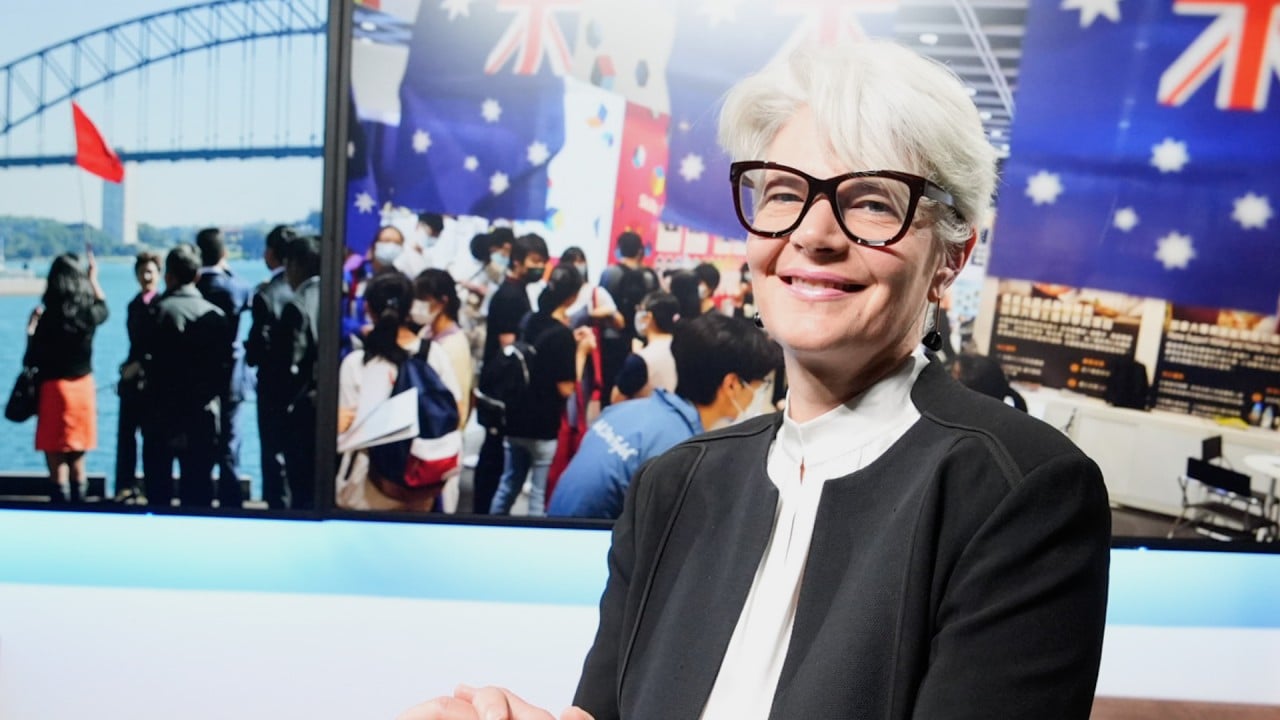Exclusive | Hong Kong may lose Australian talent to Singapore if Canberra puts tax squeeze on expats, business chamber chief warns
- Chamber suggests double taxation treaty as Canberra proposal could leave certain expats paying in two places if they stay in Australia beyond 45 days
- Chairwoman Josephine Orgill says Hong Kong remains attractive to Australians but urges city to broaden talent schemes

09:19
‘Wonderful advantages’ yet ‘mixed perceptions’ in Hong Kong: Australian Chamber of Commerce chief
The head of the Australian Chamber of Commerce in Hong Kong has called on the government to negotiate a double taxation treaty with Canberra, saying such a deal would ensure the city remained attractive to talent from the country that might otherwise go to regional rival Singapore.
In her first interview with Hong Kong media since becoming chamber chairwoman last year, Josephine Orgill also recommended broadening the city’s talent schemes to include sectors such as catering and construction, which were severely short of skilled workers.
When asked about changes in the city since Beijing imposed the national security law in 2020 and an exodus of skilled workers, Orgill said Hong Kong remained attractive to Australian talent with “all of the wonderful advantages that it’s ever had,” including a strong financial sector and independent judiciary.
“It has a combination of features that no other regional centre can rival,” she said.
Talks on a double taxation agreement are among the proposals the chamber is putting forward for Financial Secretary Paul Chan Mo-po to consider for his budget speech next month. Canberra is also weighing changes to its own tax residency framework that could affect a number of Australian expats living in Hong Kong.
Such bilateral agreements ensure expats are not taxed once by their home nation and then again by their host country. Singapore, the United States and mainland China have double taxation agreements with Australia, but Hong Kong does not. However, the city does have such deals with more that 40 other countries.